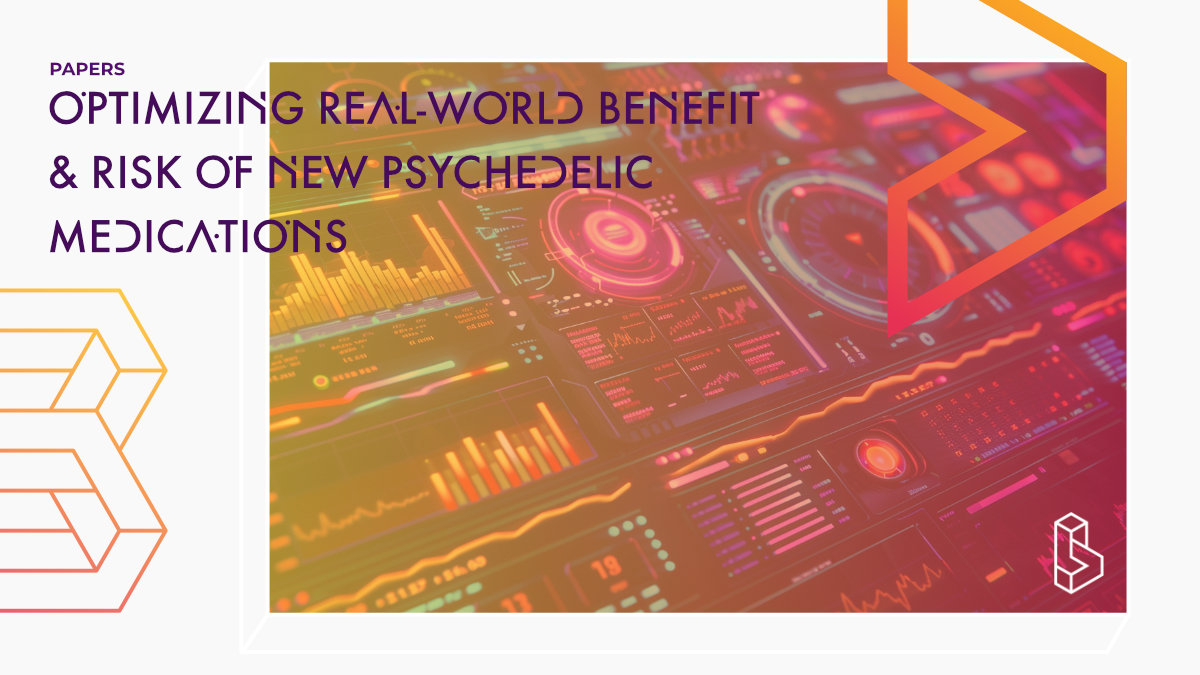This commentary (2024) highlights the promising results from late-phase clinical trials on psychedelic-assisted psychotherapy, suggesting imminent FDA approval and wider adoption in the USA. However, it emphasizes the crucial need for postmarket surveillance to ensure real-world benefits are maximized, and potential risks are mitigated. Without proper surveillance, there’s a risk of incorrect conclusions, such as attributing adverse events to illicit psychedelics. Effective surveillance programs should monitor access, safety, and effectiveness across various domains, but current data systems are inadequate, necessitating intentionally designed surveillance mechanisms.
Abstract of Optimizing real-world benefit and risk of new psychedelic medications
“The encouraging results of late-phase clinical trials investigating psychedelic-assisted psychotherapy suggests that US Food and Drug Administration approval and subsequent expansion of use is imminent in the USA. Without fit-for-purpose postmarket surveillance to proactively monitor utilization by patients and providers, there is a risk that the real-world benefits of psychedelic-assisted psychotherapy will not be realized. Incorrect conclusions, such as misattribution of adverse events to illicit psychedelics, may result from ill-designed surveillance programs. A successful surveillance program should monitor appropriate, equitable access for patients and inform reasonable limitations to improve patient safety. Multiple domains, including environmental factors, personal factors and relevant effectiveness and safety outcomes, should be incorporated. Current data systems that monitor drug use are generally ill-suited to address the unique needs for psychedelic surveillance. An intentionally designed mosaic of data systems is required to monitor the safety and effectiveness of psychedelic surveillance.”
Authors: Joshua C. Black, Andrew A. Monte, Nabarun Dasgupta, Jennifer S. Jewell, Karilynn M. Rockhill, Richard A. Olson & Richard C. Dart
Summary of Optimizing real-world benefit and risk of new psychedelic medications
Psychedelic drugs are chemically heterogeneous compounds that affect behaviour, mood, thought and perception. The US Food and Drug Administration (FDA) has issued draft guidance for clinical trials involving psychedelic medications, but has not issued similar guidance for postmarket surveillance.
Psychedelic medications are used in clinical practice with patients with more complicated psychiatric and medical conditions than those enrolled in trials. The effectiveness of these medications needs to be tailored to each drug.
The FDA is responsible for gathering information about approved therapeutics’ safety, effectiveness and optimal use. Although a new paradigm of surveillance is needed for all therapeutics, current approaches to psychedelic therapy are fragmentary, and existing data systems for other psychoactive prescription medications will not be directly transferable to psychedelic medications given the differences in pharmacology, treatment environment, dispensing, use patterns and misuse potential.
Find this paper
https://doi.org/10.1038/s44220-024-00233-1
Paywall | Google Scholar | Backup | 🕊
Cite this paper (APA)
Black, J. C., Monte, A. A., Dasgupta, N., Jewell, J. S., Rockhill, K. M., Olson, R. A., & Dart, R. C. (2024). Optimizing real-world benefit and risk of new psychedelic medications: the need for innovative postmarket surveillance. Nature Mental Health, 1-9.

